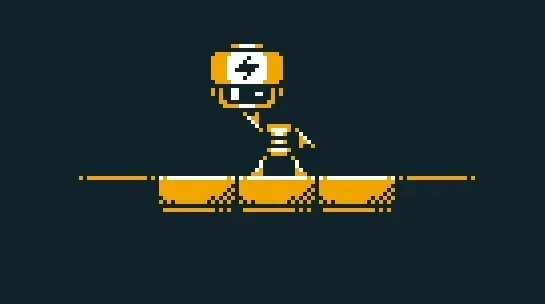
These days, don’t games seem like a nice time? What a pleasant situation. Regretfully, this implies that you may not be too impressed if I told you that ElecHead is an incredibly clever platforming puzzle game. These days, games are really amazing! There are probably hundreds of really clever platforming puzzle games available for you to choose from. A straightforward concept will be used by many, such as ElecHead, in a variety of creative ways. Like ElecHead, many will emerge from groups of one or two individuals working assiduously on issues they are enthusiastic about. What, then, is really unique about ElecHead? Though I’m not sure how to express it yet, I think it is. Let’s discuss it and see where it goes from there.
You control a tiny little robot in ElecHead, and its head is electrically charged. A metal platform that you stand on will share your charge. This indicates visually that everything that is linked to it also lights up a certain color. Everything is beautiful and clear, and there is no room for confusion. Mechanically speaking, it implies that everything attached to the platform that needs electricity begins to function: the platforms move, the ghosted-out blocks reappear, and the machinery begins to function. It will function as long as you are connected to the platform.
It also implies that, for example, if you leap, everything you were powering will stop working as long as you’re in the air and not touching the platform. That means the phantom blocks that suddenly sprang to life will vanish. Perhaps the movable platforms will return to where they were before. You will no longer be able to activate fatal energy fields. Really, both good and terrible news: possibilities.
For the first few minutes of ElecHead, you’ll be occupied solving a few puzzles based only on this concept. You go through rooms that are each decorated with large, two-dimensional pixel art, and there’s a problem in each that has to be solved. How can I overcome this obstacle? When you have to stand on the platforms that cause these energy beams to appear, how can you avoid them? From the far side of the room where it isn’t useful, how can you move that promising platform to this side where it would be incredibly useful?

Much of what makes ElecHead so enjoyable is in play even now, in these early stages. It may be referred to as the Sherlock Holmes principle. Because the electrical laws of the game are so straightforward, you already know how everything works. You are aware of your limitations and what you are capable of. When presented with a challenge, eliminate everything that is out of your control; whatever is left must hold the key to the answer. ElecHead is small yet clever at the same time. It leads and inspires you to be as astute as possible.
“This is where the game gets great: the practical thrift of it all, the simple solutions that you have to work for and then: ta-da!”
Fortunately, nothing this easy stays this way for very long. You quickly learn that you can remove and discard your head. And the portion of you that bears the responsibility is your head. You may now detach your body from the charge, which creates a plethora of new opportunities, especially because there is a clearly defined and restricted area in which you can toss your head. (Incidentally, if you can’t get back in touch with your brain in 10 seconds, you blow up.) You have all the knowledge you need, but there are also fresh options. The game then begins to cleverly but very simply twist its parts.
I believe here is where the game really shines: the straightforward answers you have to strive for and the overall practical thrift of it all, and then… ta-da! the little buzz of self-satisfaction when you solve a problem on your own.

And as it happens, anything can fit into a puzzle. Checkpoints, then, reset the problem if you get stuck. But may the secret to solving the puzzle be to reset it at a certain moment by setting off the checkpoint? Then there are the rooms, which have such beautiful connections and provide a feeling of continuity and meaning for each particular problem. Perhaps ElecHead will experiment with multi-room puzzles, a la Zelda dungeon? Perhaps you should consider what’s outside of the screen that you’re using right now. Could it be that the electrical circuits you’re initiating are more intricate than you first thought?
This, I believe, is what makes ElecHead a proper keeper for me: by whimsically connecting the rooms and occasionally challenging you to consider how the game’s obvious rules apply to multiple connected spaces at once, it transforms from a puzzle game into a puzzle game that is also a place, a playful mechanism with its own secrets and subliminal cues to seek out a deeper narrative. Thus, ElecHead is very intelligent, but it’s never simply intelligent. I mean, it’s awesome.